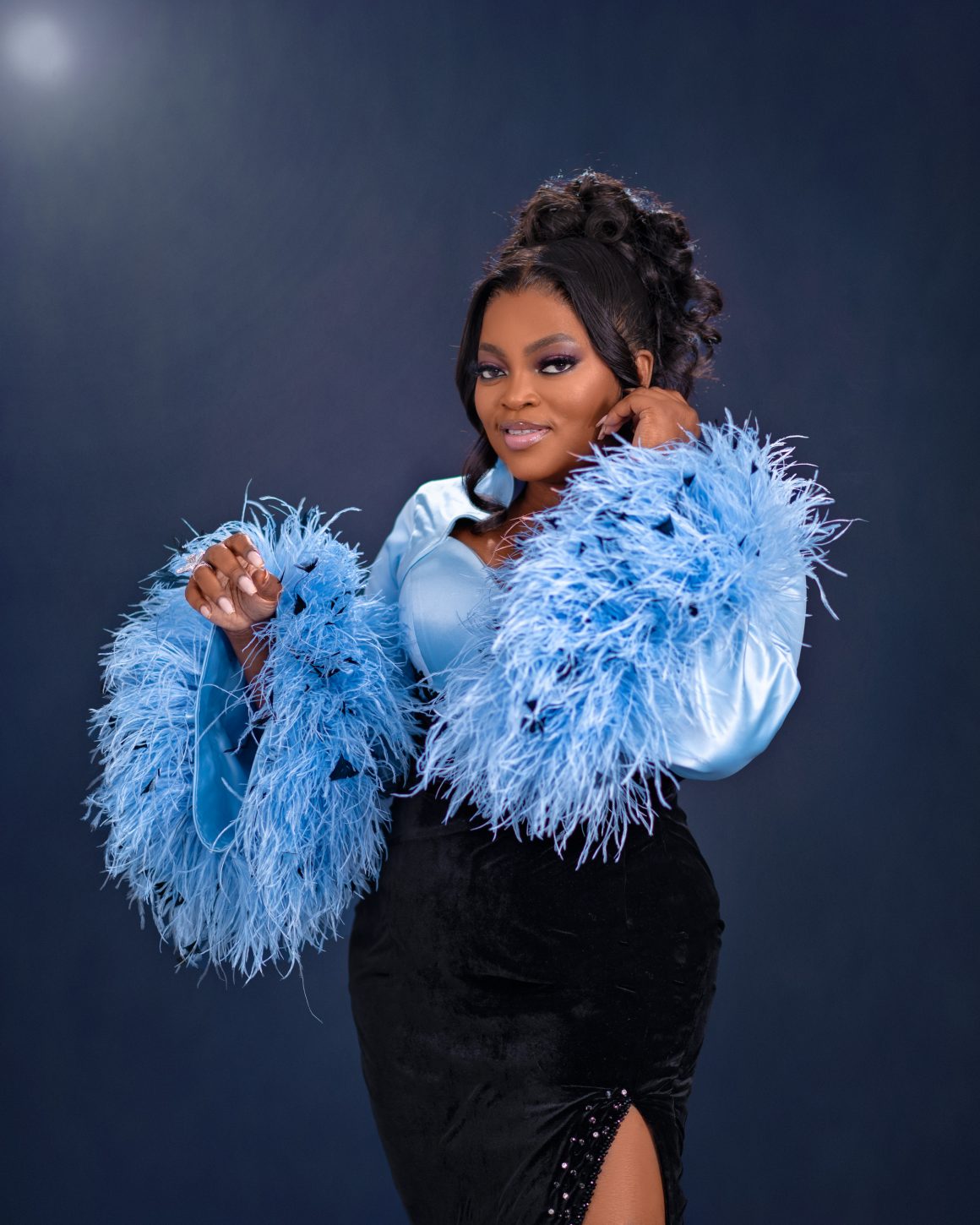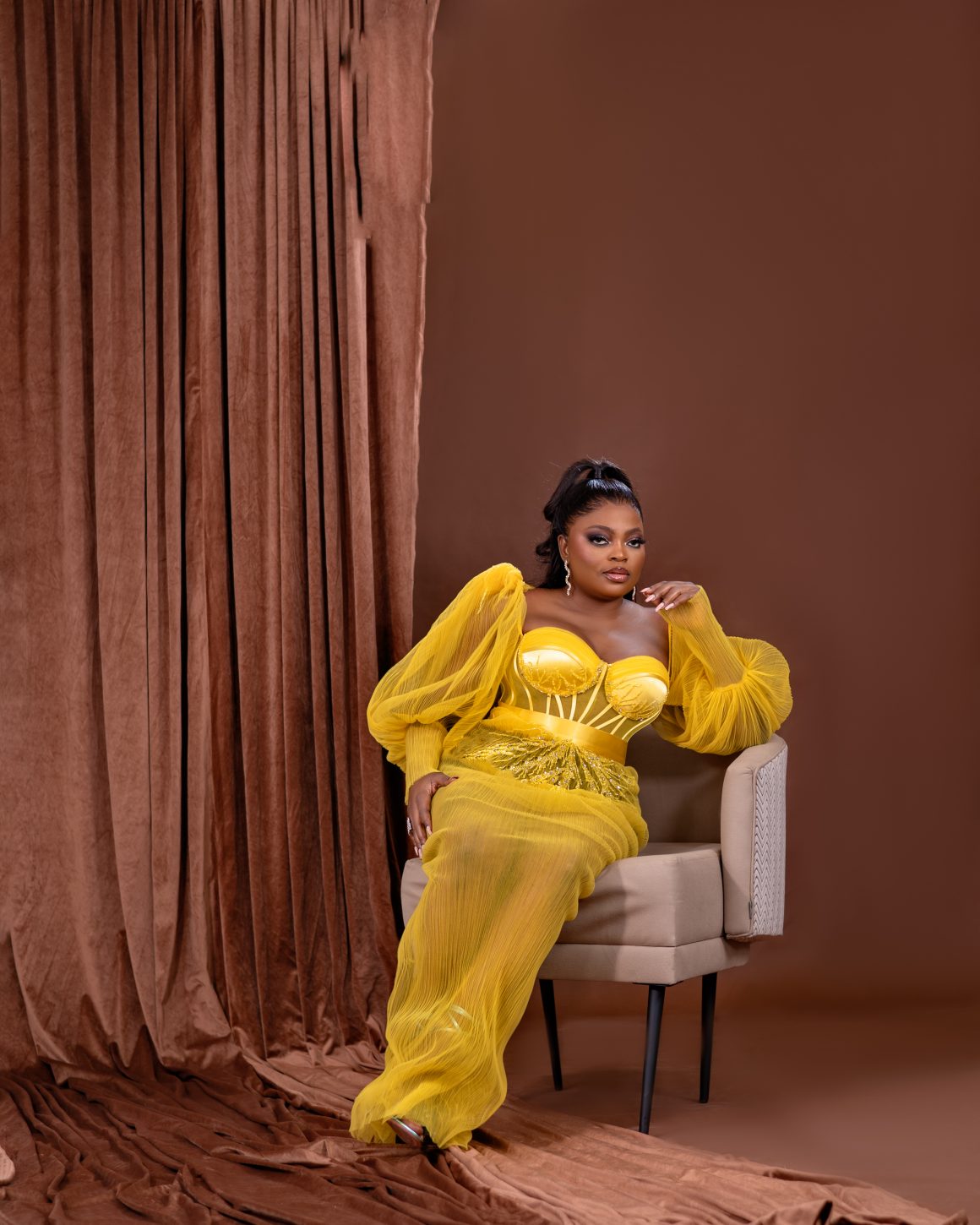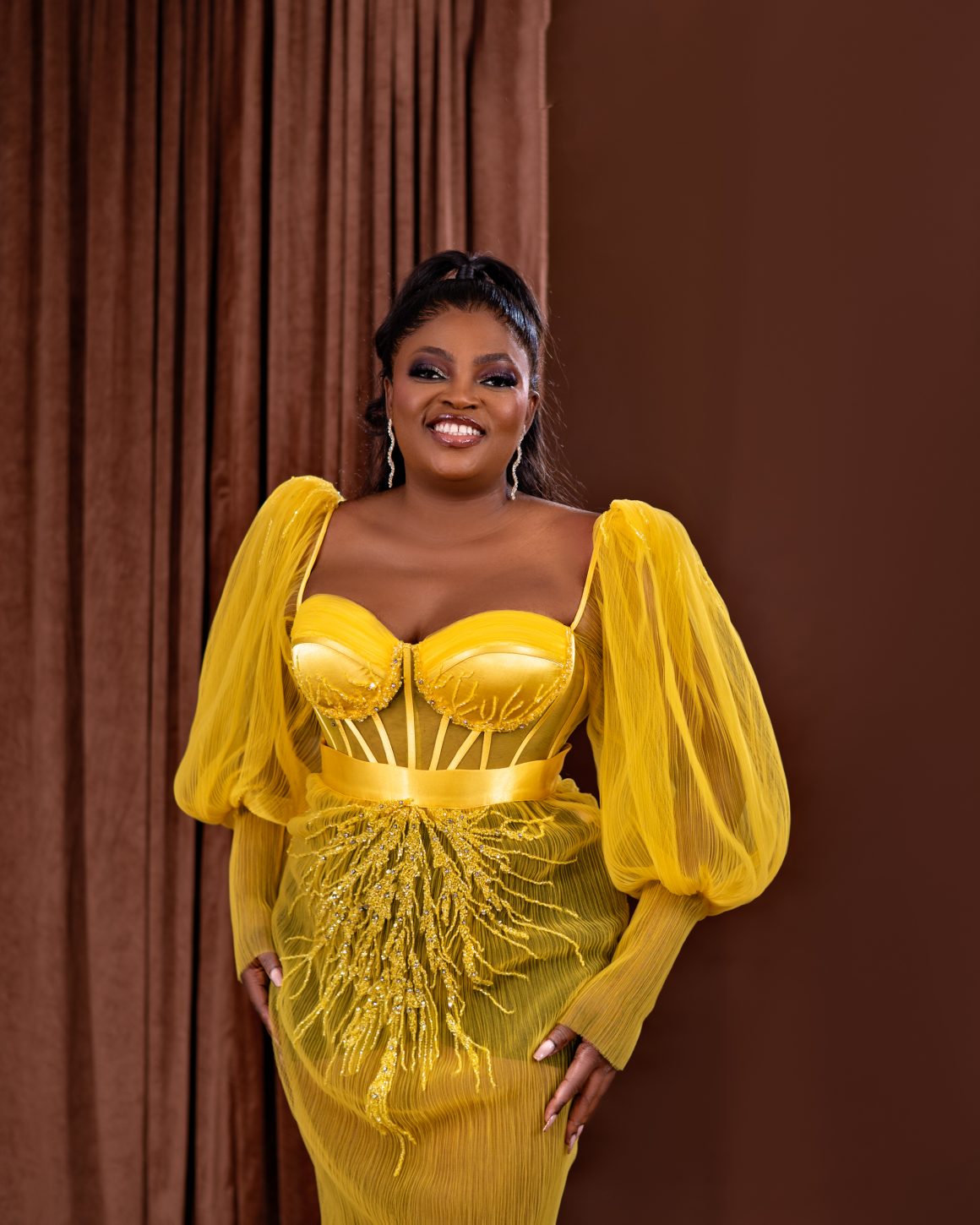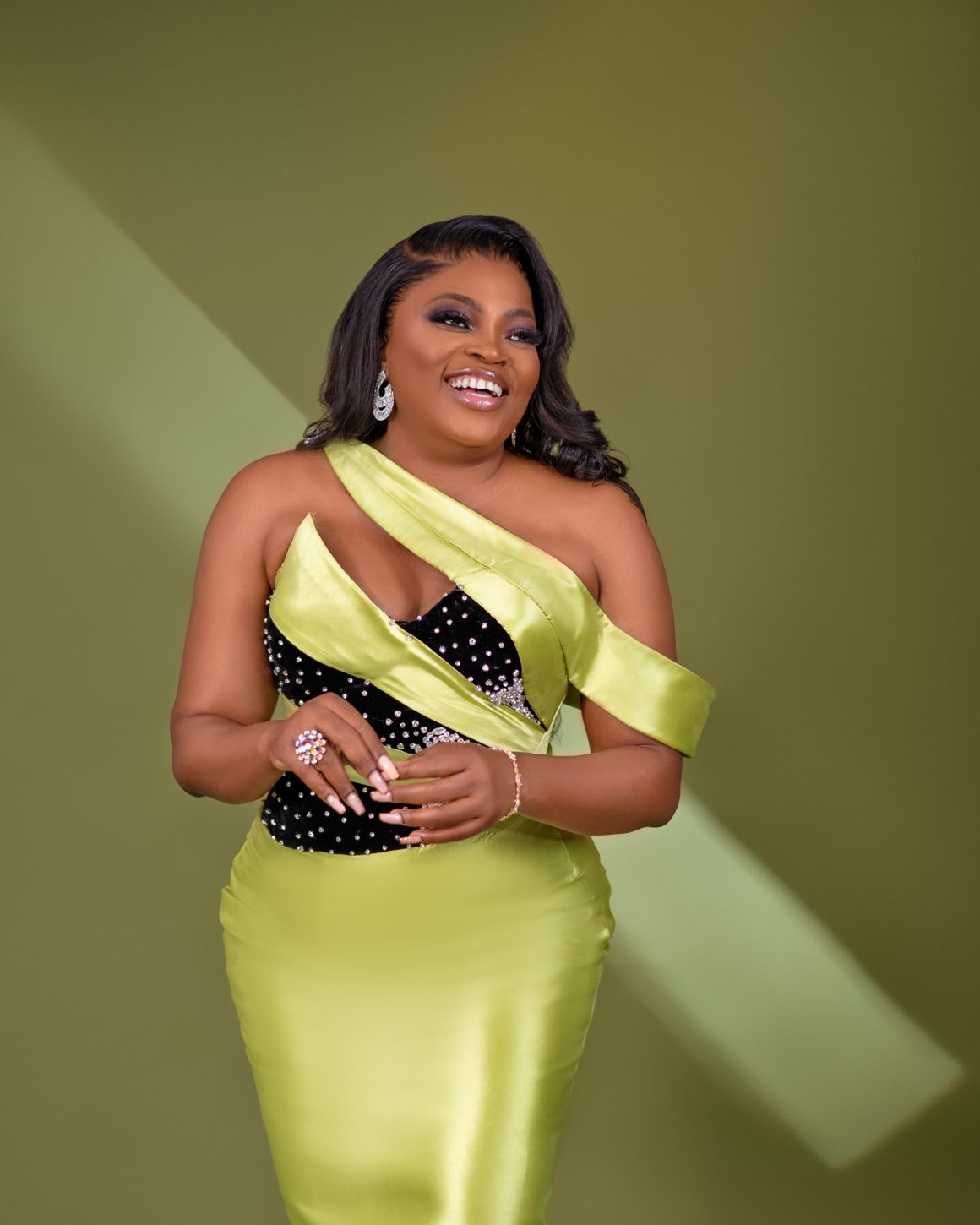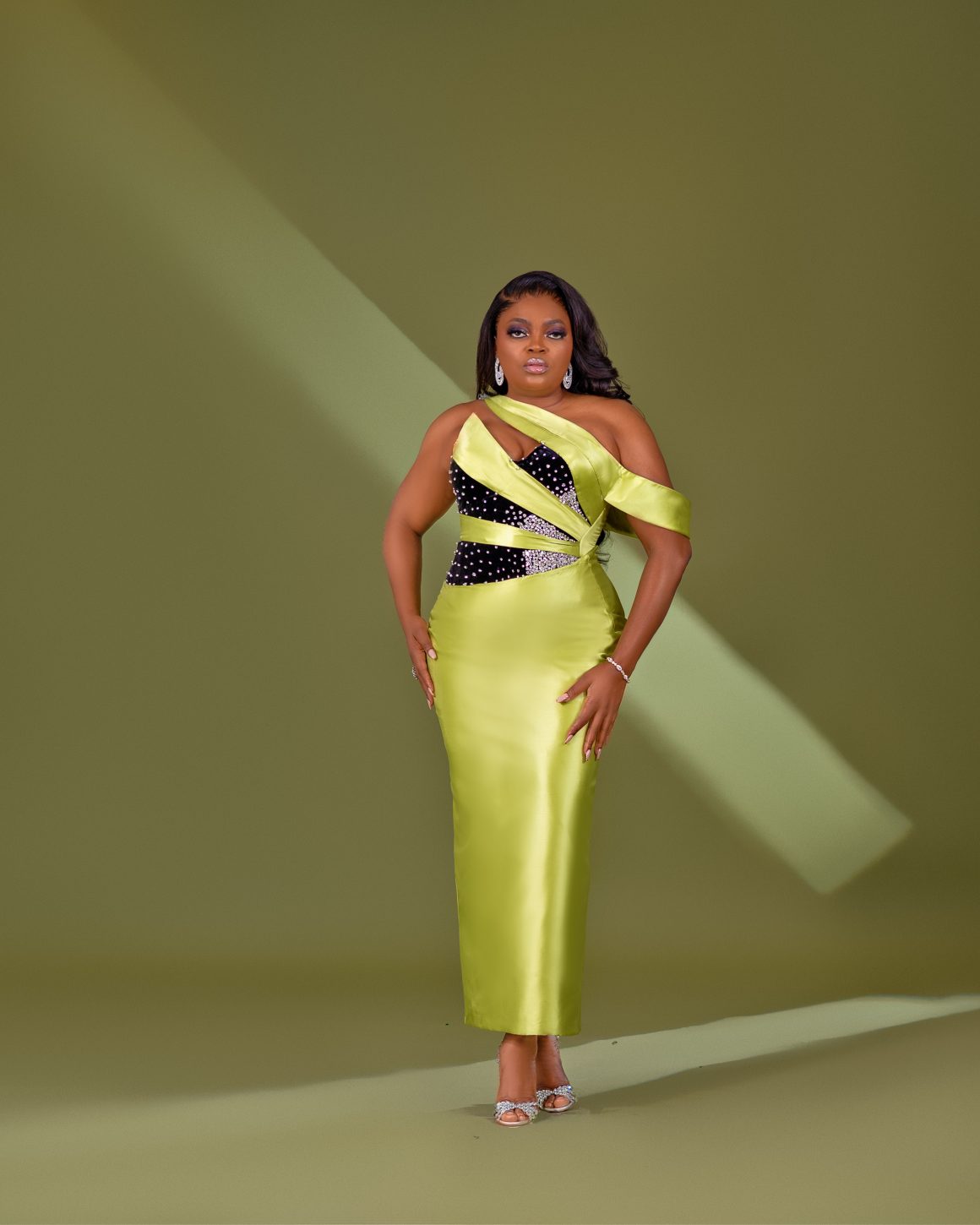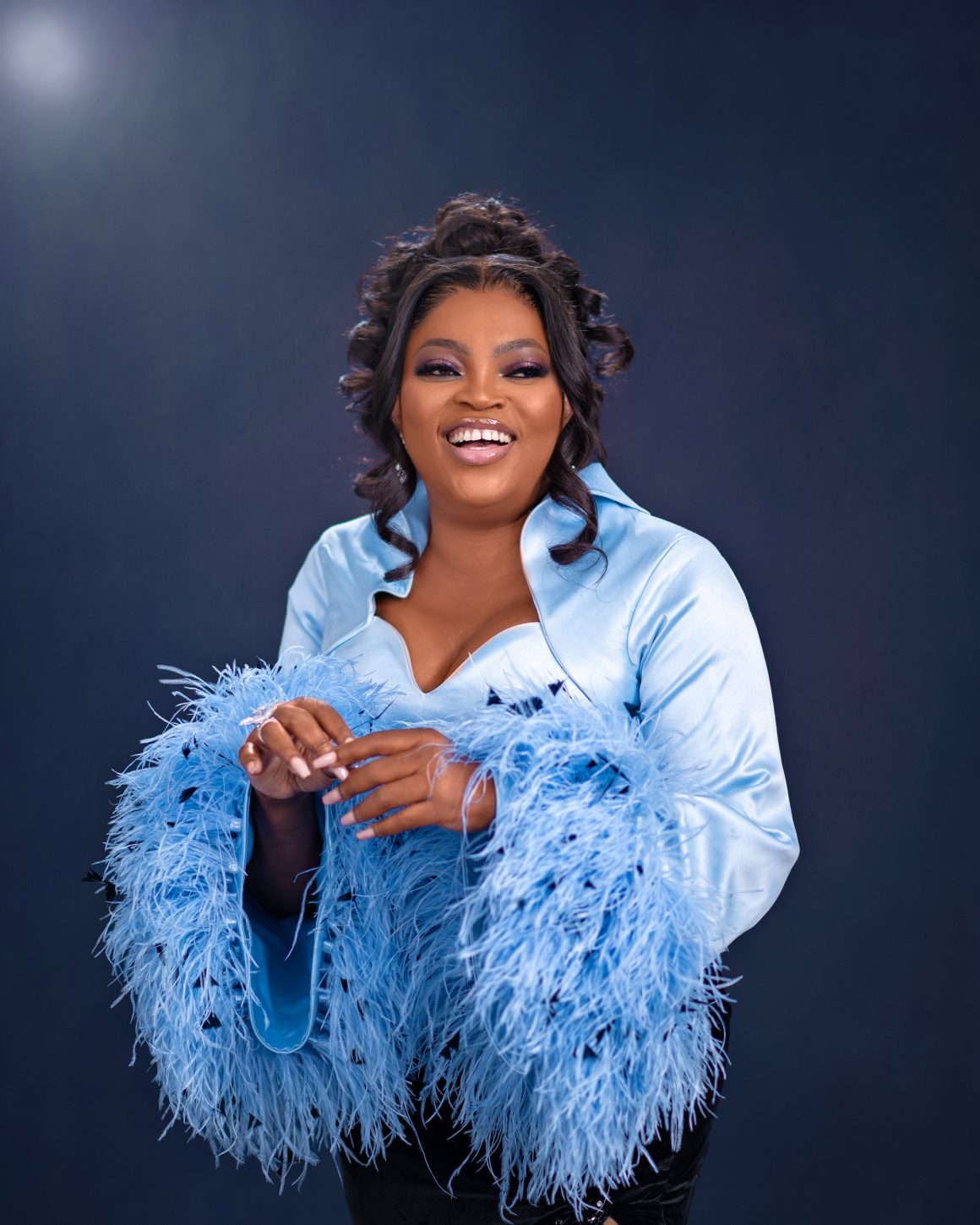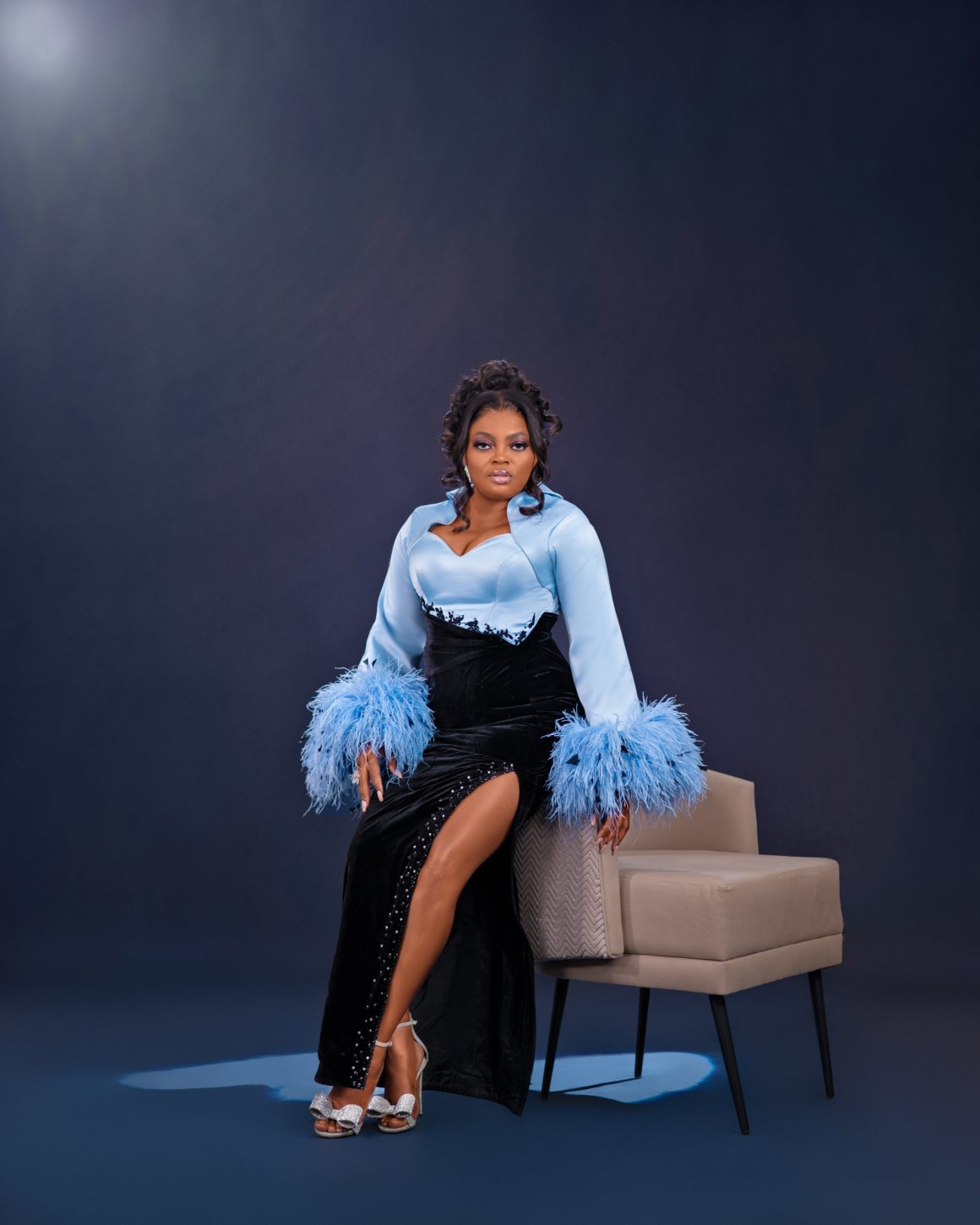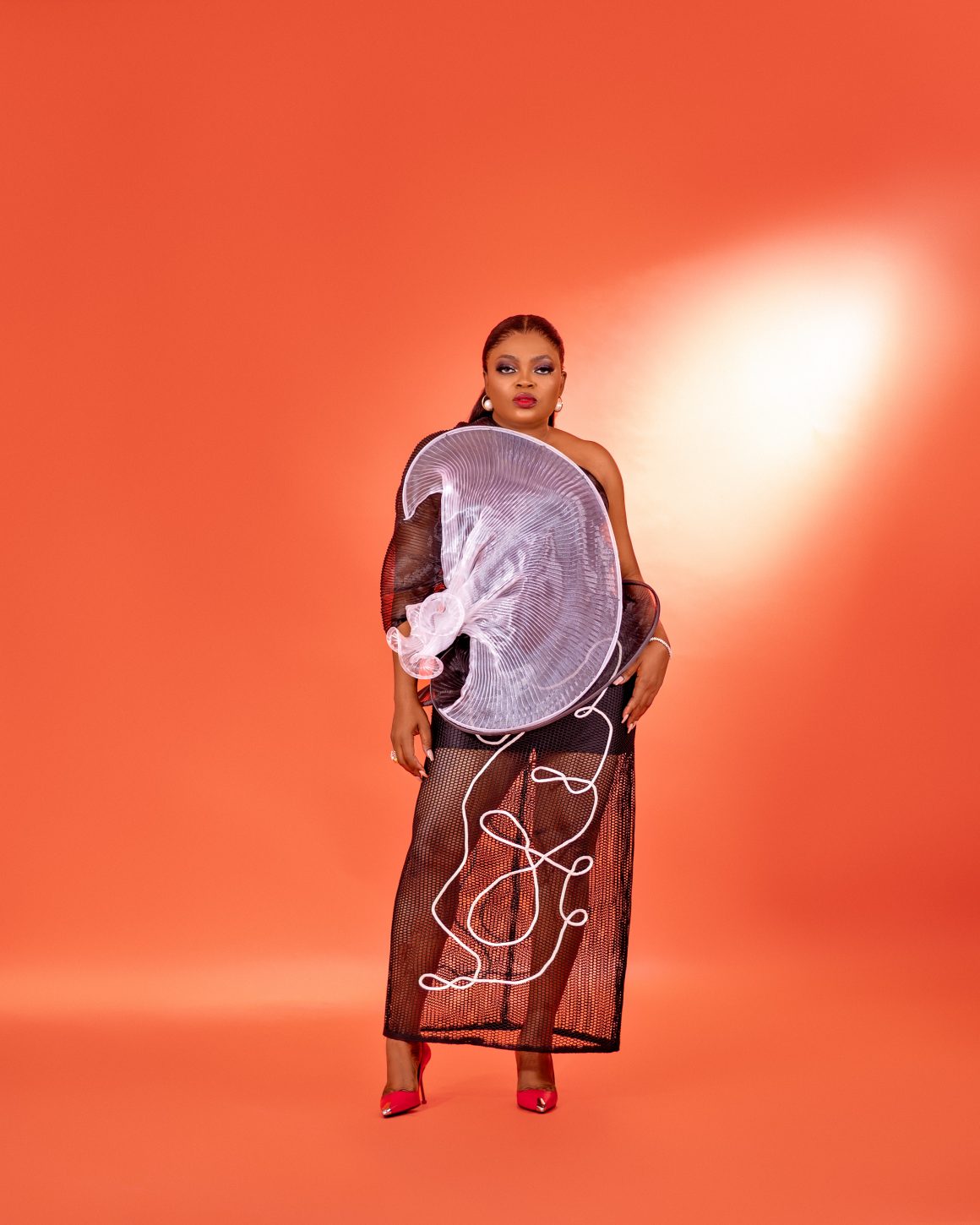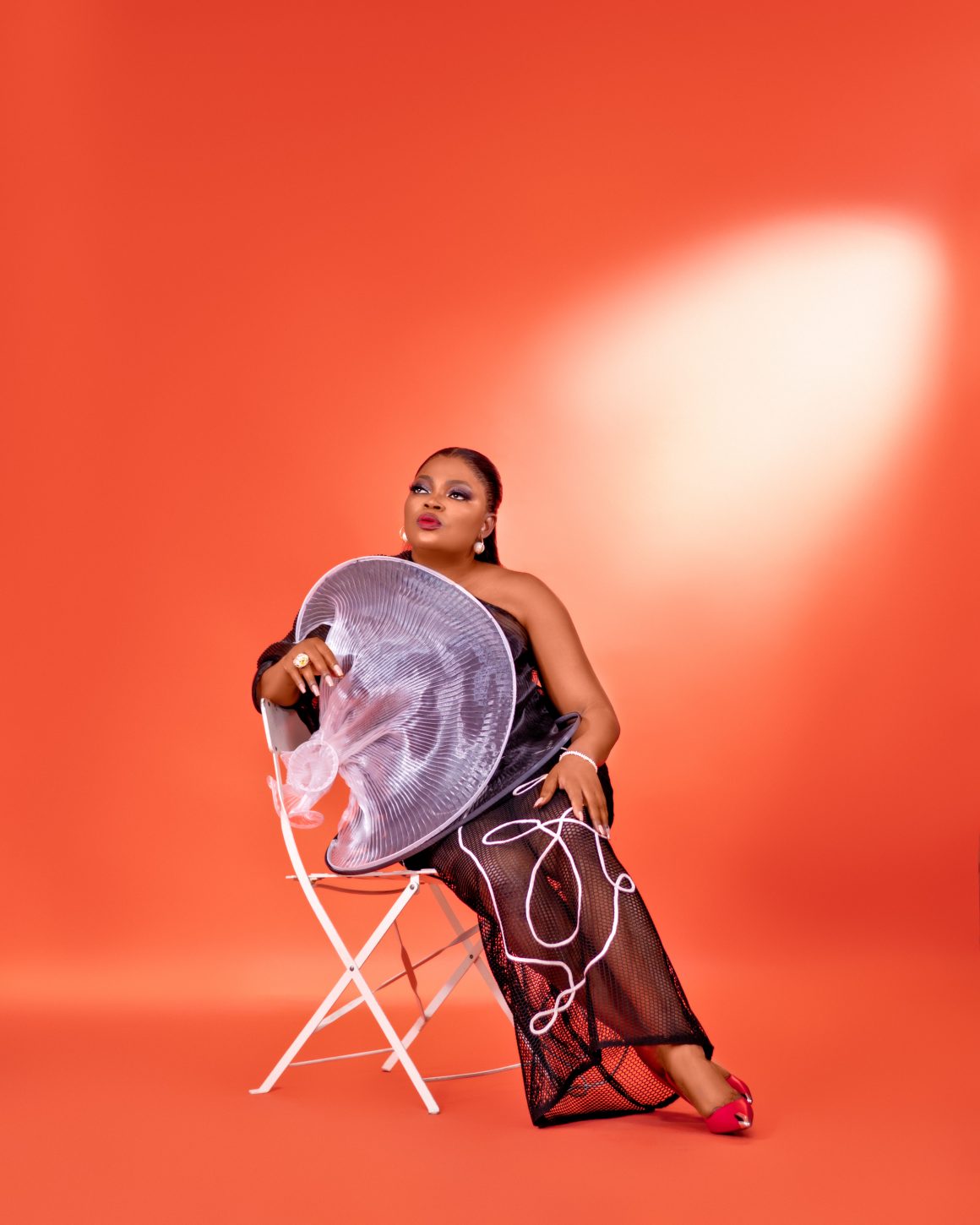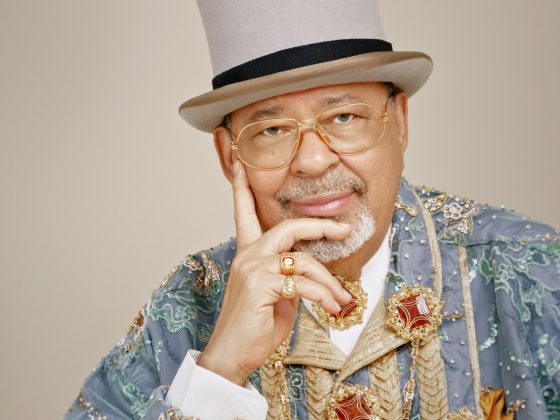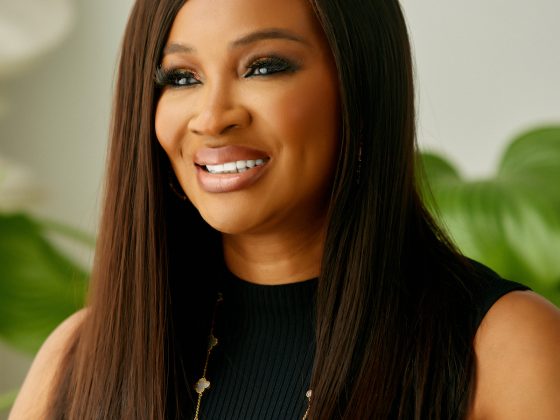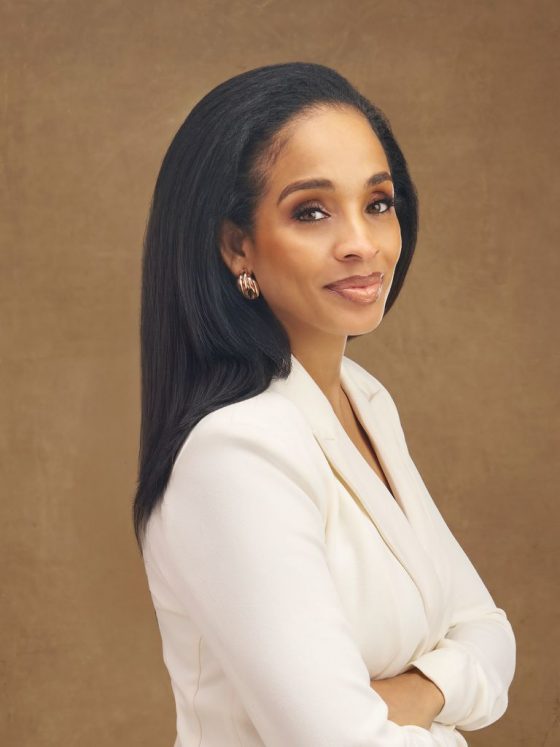We first meet Funke Akindele in the sitcom “I Need to Know” (1998-2001), where her compelling portrayal hinted at the stardom that lay ahead. But it was her iconic role as Jenifa that catapulted her into the limelight.
The character of Jenifa, a hilarious and poignant representation of Nigerian life, won hearts and showcased Akindele’s exceptional range as an actress. She reprised this role in the 2015 television series adaptation, “Jenifa’s Diary.” The series became a cultural phenomenon, earning her the Best Actress in a Comedy award at the Africa Magic Viewers Choice Awards in 2016 and 2017. Her triumph continued as she clinched the same award in 2020 and 2022, marking her fifth win in this category.
This accomplishment cements her status as the most nominated actress/filmmaker at the AMVCA, owning six wins – the highest by any actress in the event’s history. But Akindele’s talents are not limited to acting alone. In 2022, she made a bold foray into politics, being nominated as the running mate for the People’s Democratic Party’s gubernatorial candidate in the Lagos state governorship election. Though the political terrain was new, her involvement was lauded as a significant step in changing the narrative for women in politics.
Contrary to expectations that her political venture marked a departure from cinema, Akindele made a triumphant return. Today, she stands as the producer and director of two of Nollywood’s highest-grossing movies: “Battle on Buka Street” and “Omo Ghetto: The Saga,” which rank as the fourth and fifth highest-grossing films in the West African region. This feat not only cements her position as a top-tier actress but also as a visionary filmmaker.
In this interview, Funke lets us in on her journey as a mother, her foray into politics, and her remarkable career as both an actor and director. Plus, we get a sneak peek into her latest film, “A Tribe Called Judah,” set to premiere on December 15, 2023, featuring an ensemble cast including Akindele and other talented stars.
Words by Konye Chelsea Nwabogor || Interview by Oroma Roxella Rukevwe
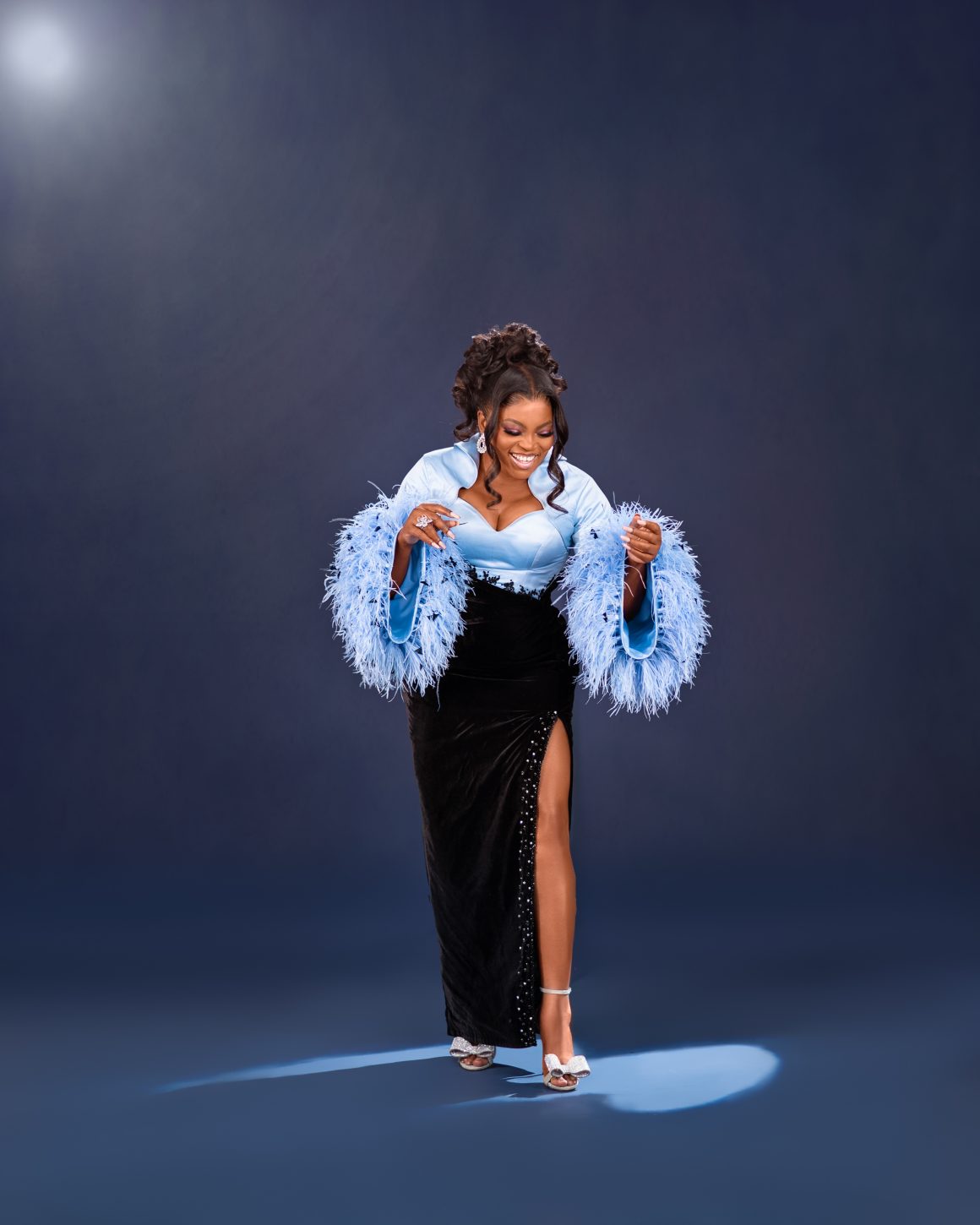
You were blessed with twins in 2018. How do you balance your career and motherhood responsibilities?
Yes, thank God. The twins are doing well, and they’re growing every day. Balancing my career and being a mother requires careful planning. I am fortunate to have supportive siblings and nannies who take excellent care of them. They have wonderful aunties, and I am always present in their lives. Take note: I only feature in my own projects, so I work within my own space. We have a house in Amen Estate, and that’s where the studio and main office are. This way, everything is kept within the family. I wake up and spend time playing with the children before getting them ready for school. One of my siblings usually handles the school runs, but when they are not available, I take on that responsibility myself before returning to work. During filming, the twins stay with my siblings and their nannies, so everything is going fine.
How would you say motherhood has changed your life and perspective on things?
Motherhood, to me, is not contingent upon a biological connection. When a child is entrusted to your care, you assume the role of a mother. It makes you more responsible and more concerned. I’ve always been a caring one. I take great care of my siblings and mentor young talents. I’m used to it. However, becoming a mother and having my own children has sharpened me. It has heightened my awareness of self-care and reminded me of the little ones relying on me. I remember how my mum took good care of me before she passed away till I grew into the person I am today. I want to provide the same level of care for my children and be present for them every step of the way. I prioritise self-care and comport myself better because anything I do now will surely affect them. As a public figure, I am aware that the internet never forgets. Hence, I strive to lead by example and maintain a positive lifestyle, one that my children will always look up to. I’m not perfect but I try my best to be cautious.
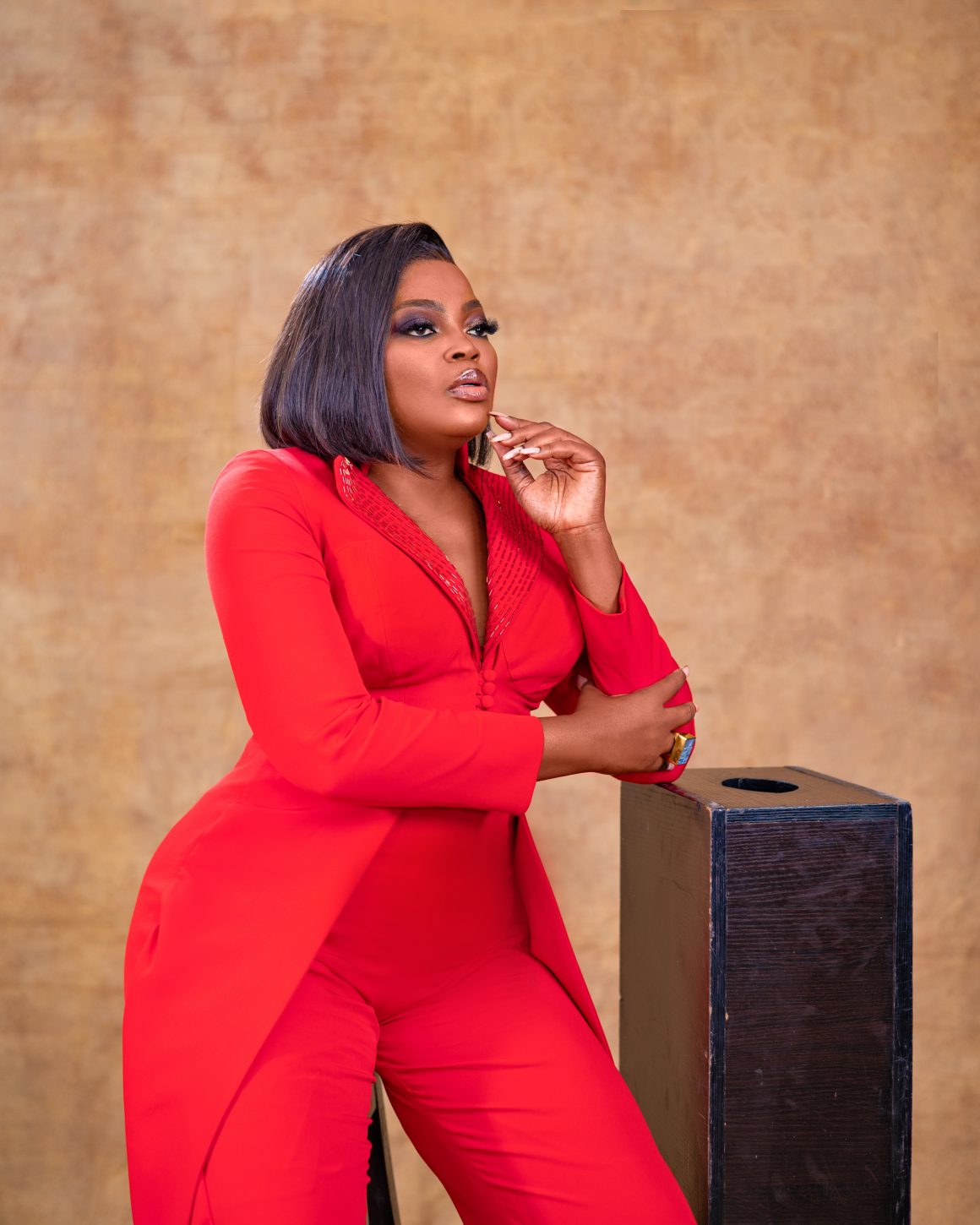
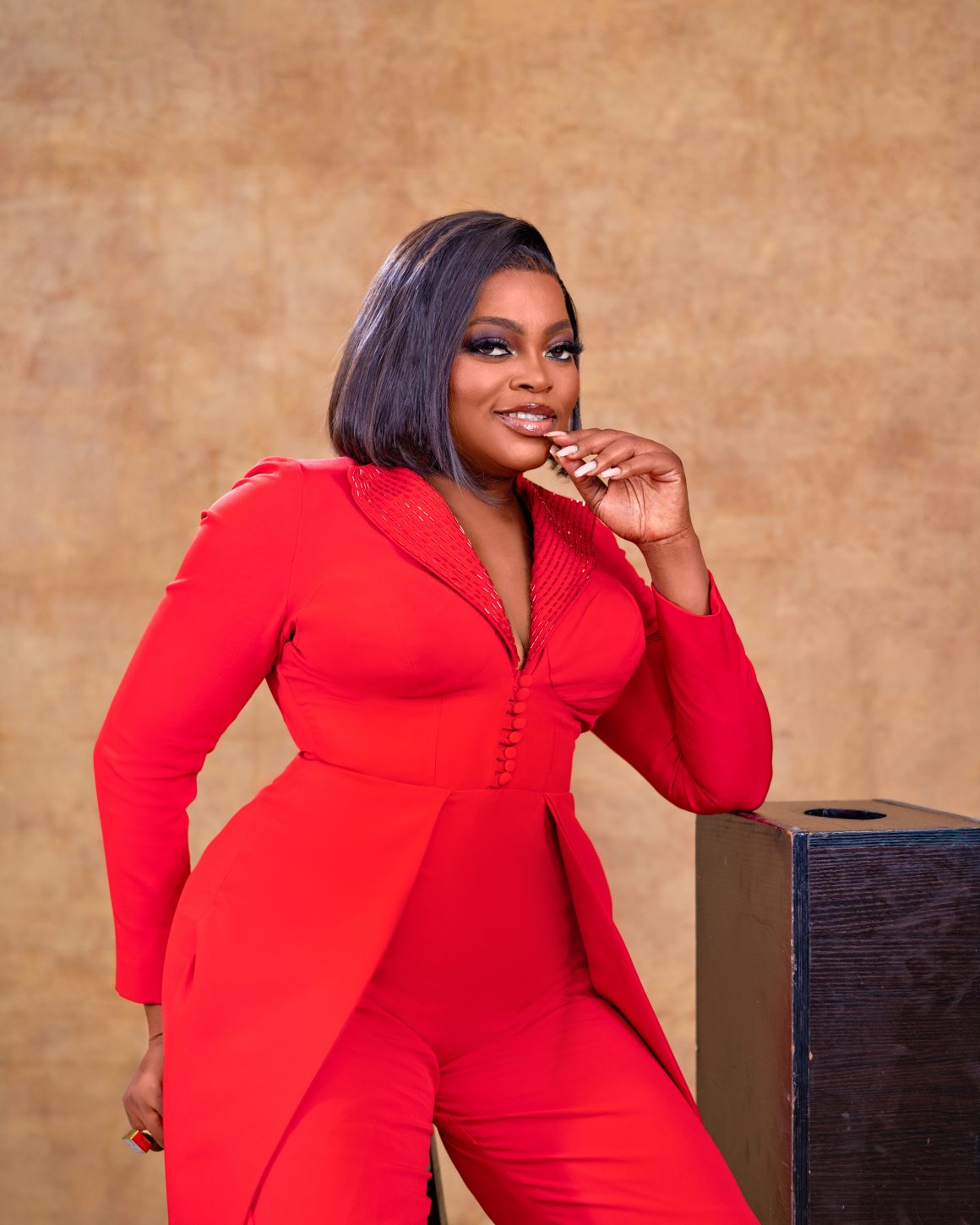
You were nominated as the Lagos deputy governorship candidate under the Peoples Democratic Party in the 2023 elections. What led up to that moment, what was the experience like for you and do you have any plans to return to politics in the future?
That was a big moment in my life. I’ve always trained people and been a leader. I started my production outfit in 2004, so it’s been years of being a CEO, training young talents and empowering people. I have always strived to make a difference, particularly when it comes to the younger generation. I believe in giving them opportunities, keeping them away from the streets, and providing them with meaningful work. As time went on, the idea started to take root in my mind: why not take this mission to an even grander scale? It was during this period that I was approached to run for the position of deputy governor. I thought about it and knew that it was what I’d always wanted. I want a change for all, especially the women. I want their lives to be impacted positively. I notice countless women who are unable to see their husbands and lack the ability to support themselves. I felt that if I got into power, I could do more for them. I could help structure things properly.
People often refer to me as a disciplinarian. I know I am. I’m a perfectionist and love seeing things done the right way. Unfortunately, we didn’t win the elections, but I remain optimistic that another opportunity will present itself. That was my first time, and it was a learning curve for me. I’m beginning to learn the politics in Nigeria, and I don’t regret it. It was a good run for me and I am proud to have represented women in this arena. As women, we must strive to assume greater roles in politics. Society often perceives us as the weaker sex, but no, we’re far from weak. We’re strong, we’re bold! We have women in different industries doing very well, women who are role models. So why don’t we get into politics and correct so many wrongs that impact the lives of our women and our children?
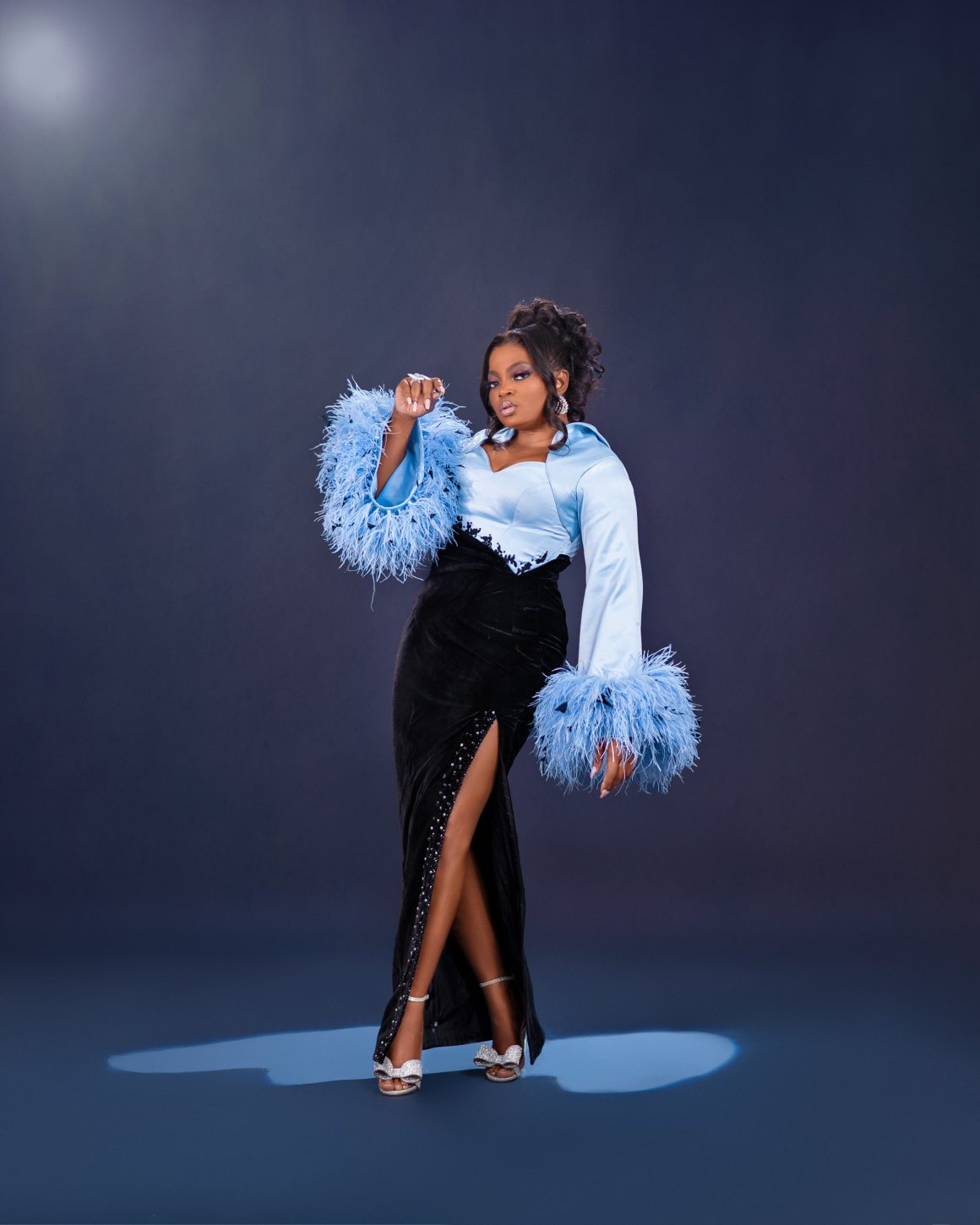
How did you make the transition from actress to producer/director, and what inspired you to take on those roles?
From the very beginning, I’ve always been a writer. I love to create stories. I remember growing up our parents used to listen to music on cassettes. My mum had the King Sunny Ade tapes and others. I would put in the cassettes, press record and tell stories. I was perhaps twelve or ten years old then. My mum was a medical doctor, and I would scribble stories in her unused patient folders. There has always been a need for me to create content, to tell stories, the African stories.
Although my dad had dreams of me becoming a lawyer, I knew that I wanted to get into entertainment and that acting was my true passion. My mum, God rest her soul, really tried her best and was always there, taking me to auditions and encouraging me. When I failed in school, my dad, who was the vice-principal, would try to ban me from acting and dancing. My mum would still encourage me to do it because she saw that I loved it. When I got into acting, it was very difficult, attending auditions and getting a lot of rejections. There are some “No”s you get that break you, but my late mum would tell me, “You are going to get one big yes that will get you up there. Just believe in yourself, keep praying and keep pushing.” I kept pushing, and I finally got the big break.
After I established myself as an actor, I didn’t land as many roles as I would have liked. I then thought, why not write my own stories and become the star of my own movies? I created my first film, “Oje Ketala,” a Yoruba movie. Initially, I dabbled in the English movie genre, but apart from “I Need to Know,” I struggled to make my mark. It was in the Yoruba genre that I finally found my breakthrough. I came up with the story, my mum sourced funds, and I produced it. That was the beginning of my journey into producing.
Through my writing, I am able to guide and instruct. However, when it came to directing on-screen, I didn’t think I could do it. When I worked with Aunty Mo Abudu, she encouraged me. She said Funke, you’re a fantastic writer and a fantastic filmmaker. Why don’t you try directing? I refused at first, but she pushed and encouraged me, so a big shout out to her. She’s one of the women in the industry who really empowers and inspires young talents out there.
I gave it a shot and directed “Your Excellency”, an EbonyLife film that exceeded all expectations. This experience gave me the confidence and boldness to take on even greater challenges. And thus, “Omo Ghetto: The Saga” was born—a testament to my growth as a director.
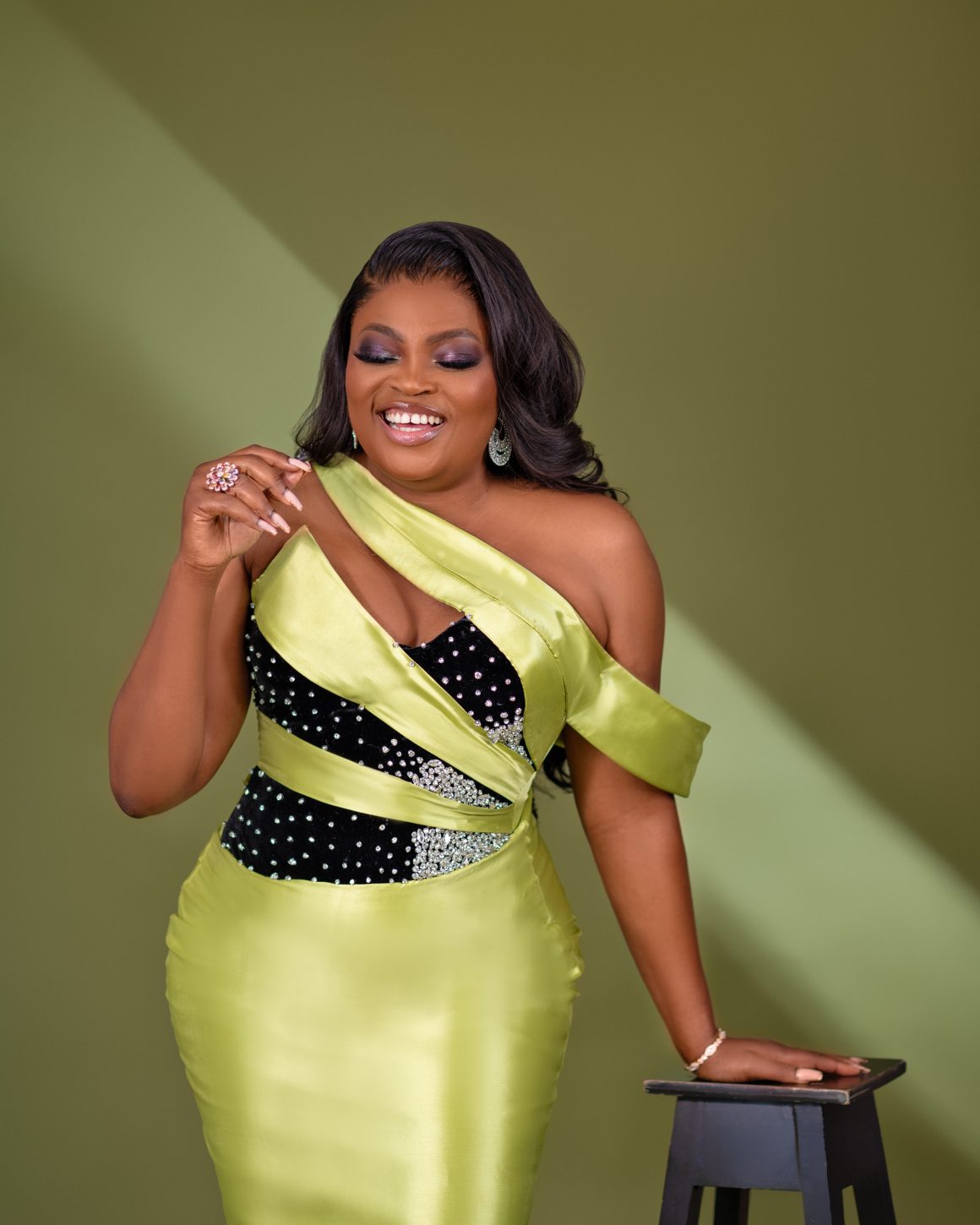
You have had a successful career as both an actress and a director. How do you balance these two roles, and which would you say you prefer?
Yes, I’ve had a successful career as both, though I must point out that I’ve only directed three or four movies. I still want to direct more. Acting is part of who I am. Even when I’m in the director’s chair, I find myself acting out each scene for the actors and demonstrating how they should be performed.
I cannot simply choose one over the other, but I am adamant about approaching each role with the utmost professionalism. Directing is not child’s play, and when I find myself acting while directing, I ensure there is a co-director by my side. For my latest film, “A Tribe Called Judah,” I have the talented Adeoluwa Owu (Captain Degzy) serving as my co-director.
You have been in the industry for several years now. How have you seen the Nigerian film industry evolve over time? What do you think is the biggest challenge facing Nigerian filmmakers today?
So far, so good. There’s been a lot of improvement, and we’re growing and evolving. I can still recall the days when VHS tapes were the norm, and then came CDs and DVDs. Now, we have the convenience of streaming platforms, and the cinema culture is thriving. It’s not going to die. Everyone wants to go to the cinema with their family and friends. Our content has improved tremendously, thanks to the brilliance of filmmakers like Mo Abudu, the mastermind behind EbonyLife, as well as Inkblot, Kemi Adetiba, and Kunle Afolayan.
I think the major challenge for us in the industry is gaining access to sufficient funding and resources. If we were given bigger budgets, I’m sure we would produce even greater content. Hollywood movies have budgets worth millions of dollars; that’s why they’re able to achieve what they can. If I can get that, trust me, you would be wowed. Despite this, things are getting better. The recent movies are way better than the ones from two to three years ago. We need to invest in training more young people. We need to have faith in the talents present in Nigeria. Let us nurture our young talents here instead of relying on foreign filmmakers to come and create movies for us. If you look at South Africa, they churn out fantastic content because they have skilled directors, producers and crew members there.
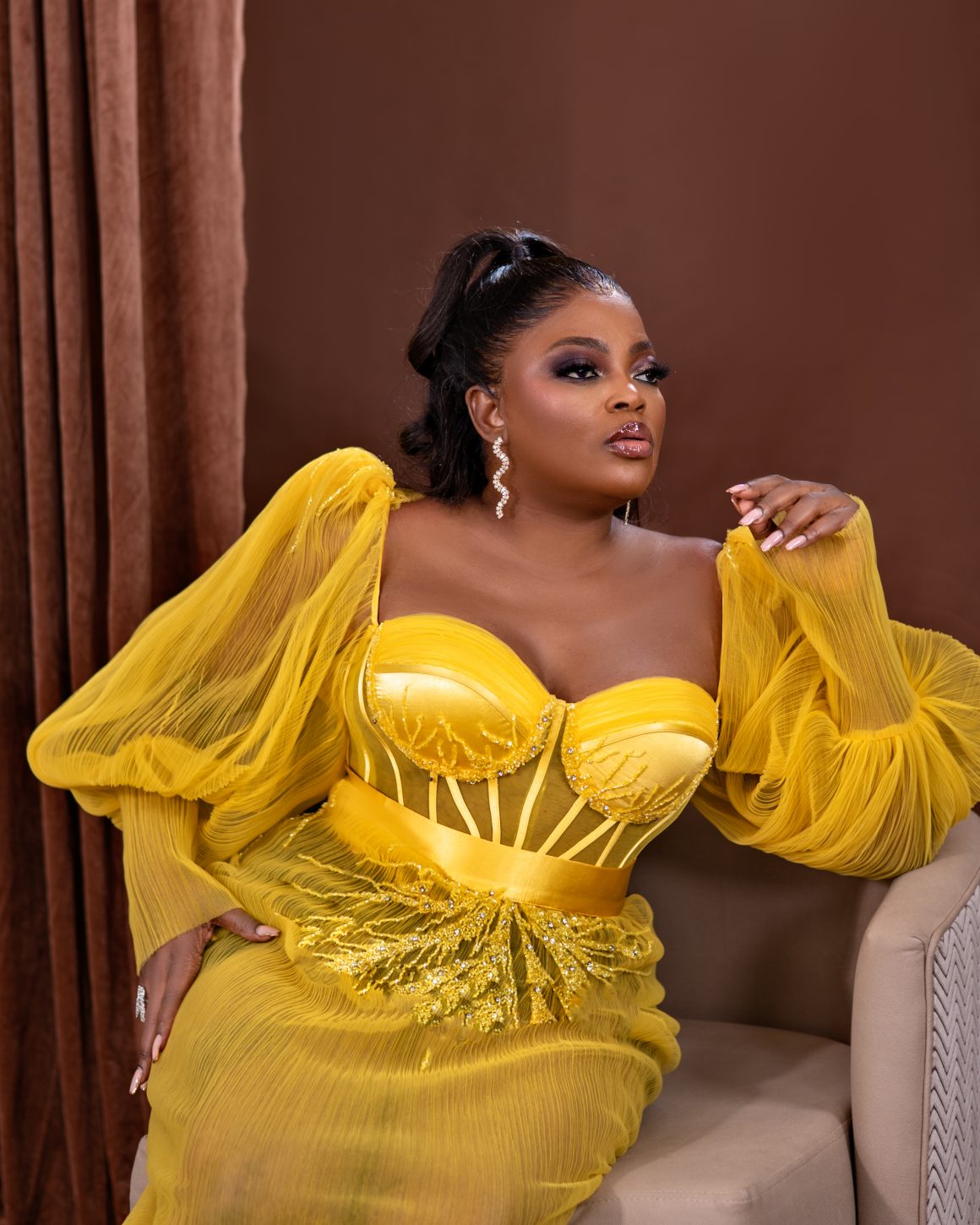
You are known for your work in the comedy genre. Why do you focus on this genre?
It’s not just comedy. It’s comedy-drama. I love to make people laugh and bring them joy. I’m a stickler for happiness. There’s never a dull moment with me, and I don’t pray to be sad. I believe that no matter what challenges life throws at you, you should always keep a smile on your face. Nobody ever promised that life would be easy. As a vessel used to entertain people, why don’t you make them happy?
In my films, there are moments that make you smile and laugh and others that may make you sad because that is life. You have some very funny characters that are wicked and some that are sad and depressed. So, while you’re smiling, you’re also learning a lot. Don’t forget that we’re in a society where a lot of people are depressed. Things are hard these days, so you need to attract people with happy, joyful moments. When you come across skits on Instagram, if they don’t instantly make you burst into laughter, then you just continue scrolling. “Battle on Buka Street,” which we released last year, had a mix of comedy, drama and more.
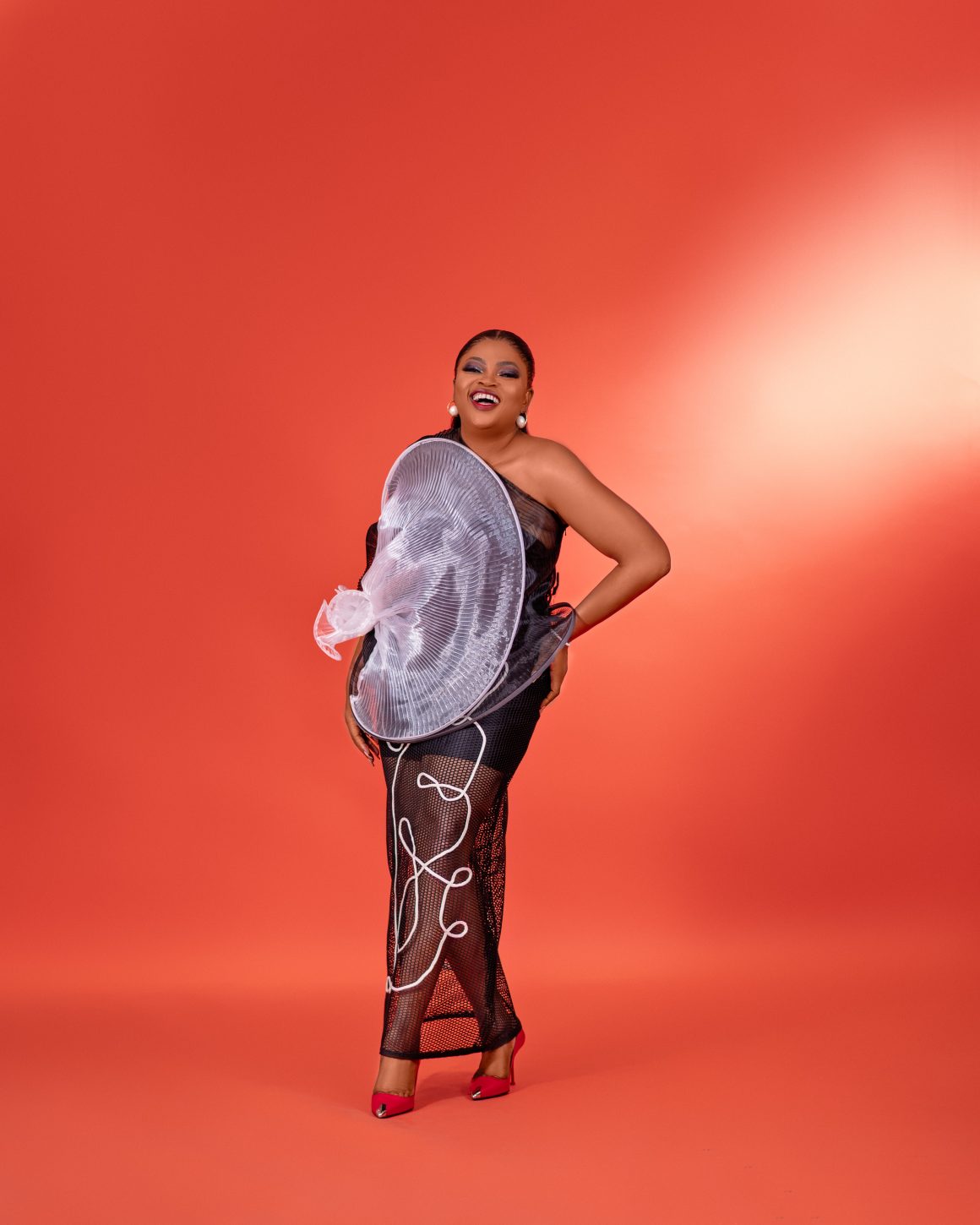
You have been nominated for and won several awards for your work in the film industry. How does it feel to have your talent and hard work recognised in this way?
I feel good, happy and privileged. I’m honoured. Whenever I say this to my close friends, they doubt me but I don’t really let accolades get into my head. I recognise them, and I return the glory back to God because, without God and hard work, I wouldn’t be here. I appreciate accolades but I don’t let them get into my head. Rather, they serve as motivation for me to work harder because I don’t want to lose. I want to keep winning, and I want to be successful. The accolades are like a pat on the back saying, “Well done, but do more.”
How important is collaboration in the filmmaking process, and how do you work with your team to bring your vision to life?
Collaboration is key. When people watch my movies, they praise me. While I make the final decisions, I am fortunate to work with very dedicated people. It’s very important to collaborate in this industry. You can’t do it alone. You must listen to other people, tinker around and let them think with you. Don’t forget that we’re in the Gen Z era, and involving them in content creation and valuing their perspectives is necessary. I strongly advise filmmakers to join forces and work together. I’m willing and open to doing it myself because we have a lot of wonderful writers and filmmakers among us, including Biodun Stephen, Jade Osiberu, and Kemi Adetiba, who are all wonderful. Collaboration leads to better content and will help grow the industry. Unity is key.
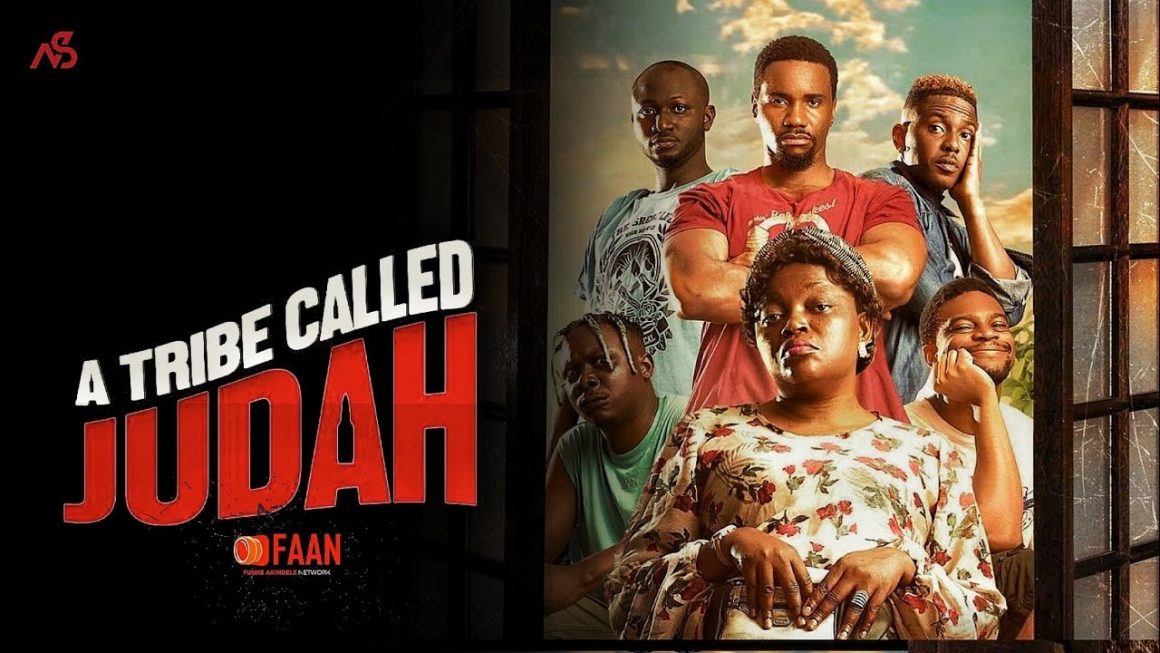
Your new film, A Tribe Called Judah, is set to be released on December 15th. Can you give us a sneak peek of what audiences can expect from this film?
A Tribe Called Judah will be in cinemas from the 15th of December. That story is so dear to my heart. It has a part of my late mum in it, and it represents the struggles faced by many single parents and mothers in society. There’s often a stigmatisation surrounding women who have children out of wedlock. They get labelled as prostitutes or as useless, with the assumption that their children will amount to nothing. I’m from a broken home, but look at me today.
The film also sheds some focus on rebellious children. When they start out being rebellious, their families tend to give up on them. However, it is important to look for something special in your child; help them nurture their talents, and they will become great with it. I started out studying Law, but I love to act and dance, and that is what sustains my lifestyle today.
The story revolves around Jedidah Judah, a woman who has five sons from five different men, all belonging to different tribes. This fact alone is enough to shock people and lead them to pass judgement. The children are all adults, with the youngest being 21 years old. There is an abundance of love between them and for their mother. We look at her life in the movie. How does she cope with these children?
This movie will resonate with people from all walks of life- be it the high-class, middle-class, low-class, or the grassrooters. I made sure that everybody was represented in it. It aims to tell our stories, the African way, by showcasing our reality and struggles. Those who have faced similar challenges will find solace in watching this movie, as it acknowledges their experiences and offers potential solutions.
Like I said, a part of my mum is also in the movie. I didn’t know that she was going to pass on. I didn’t even know that she was going to be sick when I wrote the story but it happened. This movie holds a special place in my heart as it is dedicated to her memory.
How did you go about selecting the cast for this movie?
I love to be realistic and objective when casting. Sentiments do not influence my decisions; you have to be talented to work with me, and I admire disciplined actors. I had the pleasure of working with an exceptional cast for this movie: Nse Ikpe Etim, Timini Egbuson, Uzor Arukwe, and so many others. I set out looking for actors that would give me what I wanted, and I got the best.
Are there any particular scenes or moments in the film that you are particularly excited for the audience to see?
A lot, but I’m not going to spill. Just know that the audience will be so wowed.
Your previous films, Battle on Buka Street and Omo Ghetto: The Saga, were both major successes. Did you feel any pressure to live up to those expectations with A Tribe Called Judah?
No pressure at all. The sky is big enough for everyone to fly. Just keep doing what is right and promoting your content. Your work will speak for you, and if it’s good, it will sell. I’m just going to keep doing my thing and doing it well.
To be honest, the pressure does come sometimes, but I self-reflect and remind myself to do my own part and leave the rest for God. After all, there were people who came before me, paving the way for my own journey.
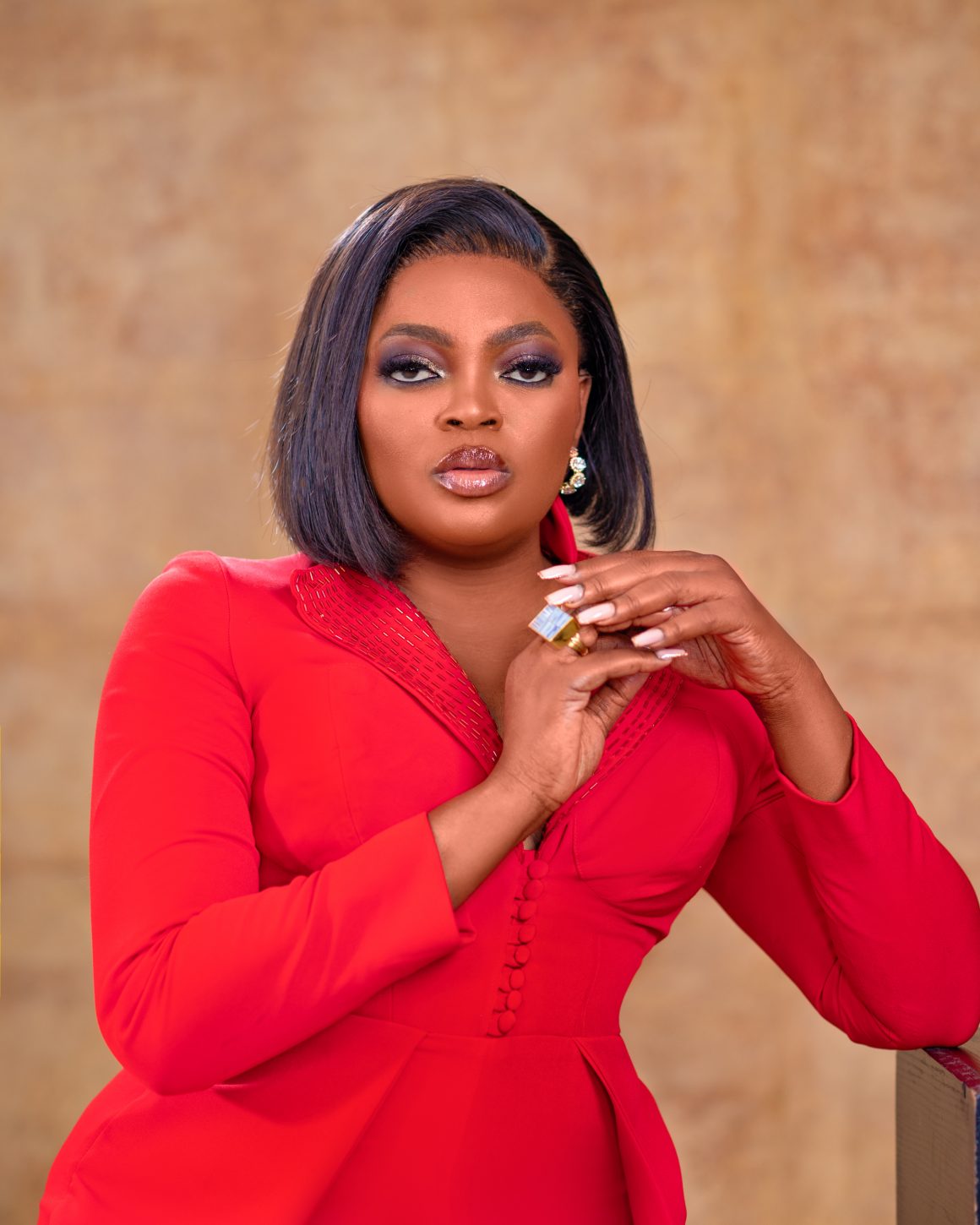
Can you tell us about any upcoming projects you have in the works?
Oh yes. We have quite a few lined up for 2024. My major focus is on empowering the younger generation. I’m very concerned about the youth, I must say. They often perceive me as overly disciplined, and while that is not an issue, it is saddening to witness the prevalence of drug abuse among them. Sometimes, they’re depressed and idle with no jobs. Why don’t we extend a helping hand to them?
When I present my proposal to the government, banks, and organisations, I hope they will support and collaborate with the Funke Akindele Network. I want to help youths nurture their talent in the entertainment industry and give them something to do. This is where the Jenifa Foundation comes into play. We invite young people to join us and receive training in various departments of filmmaking, with the intention of employing them afterwards. If they prefer not to work for us, we place them elsewhere instead of simply providing training and abandoning them like some others do. We provide them with starter packs – for instance if they are interested in photography, we give them cameras to capture behind-the-scenes moments on set. We also offer set salaries, leave days, and the opportunity to pursue private practice during their time off. Whether they aspire to be content creators or videographers, we teach them all the necessary skills. They can attend parties and events, cover them and earn a livelihood in the process.
I’m very passionate about that for 2024, and I believe that God will assist me in achieving it. The budget is very huge, but I’m sending out my proposals soon. If you happen to come across this message and are capable of contributing to this vision, your support would be greatly appreciated.
Stylist: ZACKSTYLING LUXURY
Photographer: Sabie Gal
Makeup: Bimpe Onakoya
Hair Stylist: ADEFUNKEEE
Outfits: Nicholestylish, LFJ x Kim Couture

